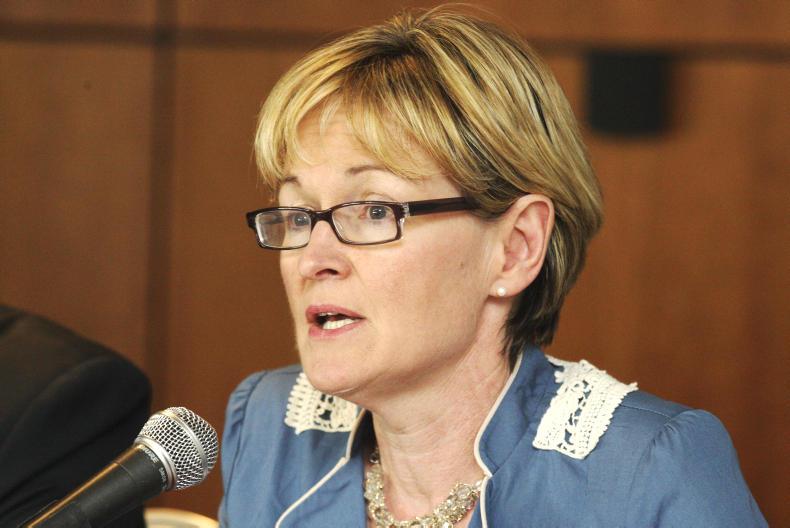Speaking this week, McGuiness said issues such as budgetary and environmental pressures, as well as Brexit and farmer frustration with the existing CAP, will result in a different landscape post-2020.
“Direct per-hectare payments are under attack. Some experts regard them as badly focused, inequitable and inefficient as a means to support farm incomes and to deliver environmental objectives.
“In addition, there are calls for more measures to target market volatility and in the absence of additional money for the CAP then these measures can only be funded through the existing pool of CAP money,” McGuinness said.
She added while criticism of the CAP and how payments are delivered is growing, there is also a realisation that cutting payments drastically in a short timeframe would not be acceptable.
“What we may be looking at is a change to the current system over time and not overnight.”
The debate on the next CAP has commenced in Europe with experts and politicians starting to piece together the shape of the next CAP which must be in place for 2020.
There is deep frustration with the greening measures from farmers and environmentalists
McGuinness, who also serves as vice-president of the European Parliament, said she is concerned how more of focus on the environment will be delivered for farmers.
“There is deep frustration with the greening measures from farmers and environmentalists. Among farmers, there is anger about the overly bureaucratic nature of the measures, which many of us warned about during the reform process.
’We need farmers to produce food’
“The CAP debate is now under way and I believe it is time for a less divisive debate between farmers and environmentalists. We need farmers who are on the ground to produce food and to manage our environment, but they need support, policy certainty and a marketplace, which ensures they are adequately rewarded,” said McGuinness.
Read more
2017 most uncertain year for CAP and farming
Speaking this week, McGuiness said issues such as budgetary and environmental pressures, as well as Brexit and farmer frustration with the existing CAP, will result in a different landscape post-2020.
“Direct per-hectare payments are under attack. Some experts regard them as badly focused, inequitable and inefficient as a means to support farm incomes and to deliver environmental objectives.
“In addition, there are calls for more measures to target market volatility and in the absence of additional money for the CAP then these measures can only be funded through the existing pool of CAP money,” McGuinness said.
She added while criticism of the CAP and how payments are delivered is growing, there is also a realisation that cutting payments drastically in a short timeframe would not be acceptable.
“What we may be looking at is a change to the current system over time and not overnight.”
The debate on the next CAP has commenced in Europe with experts and politicians starting to piece together the shape of the next CAP which must be in place for 2020.
There is deep frustration with the greening measures from farmers and environmentalists
McGuinness, who also serves as vice-president of the European Parliament, said she is concerned how more of focus on the environment will be delivered for farmers.
“There is deep frustration with the greening measures from farmers and environmentalists. Among farmers, there is anger about the overly bureaucratic nature of the measures, which many of us warned about during the reform process.
’We need farmers to produce food’
“The CAP debate is now under way and I believe it is time for a less divisive debate between farmers and environmentalists. We need farmers who are on the ground to produce food and to manage our environment, but they need support, policy certainty and a marketplace, which ensures they are adequately rewarded,” said McGuinness.
Read more
2017 most uncertain year for CAP and farming






 This is a subscriber-only article
This is a subscriber-only article










SHARING OPTIONS: